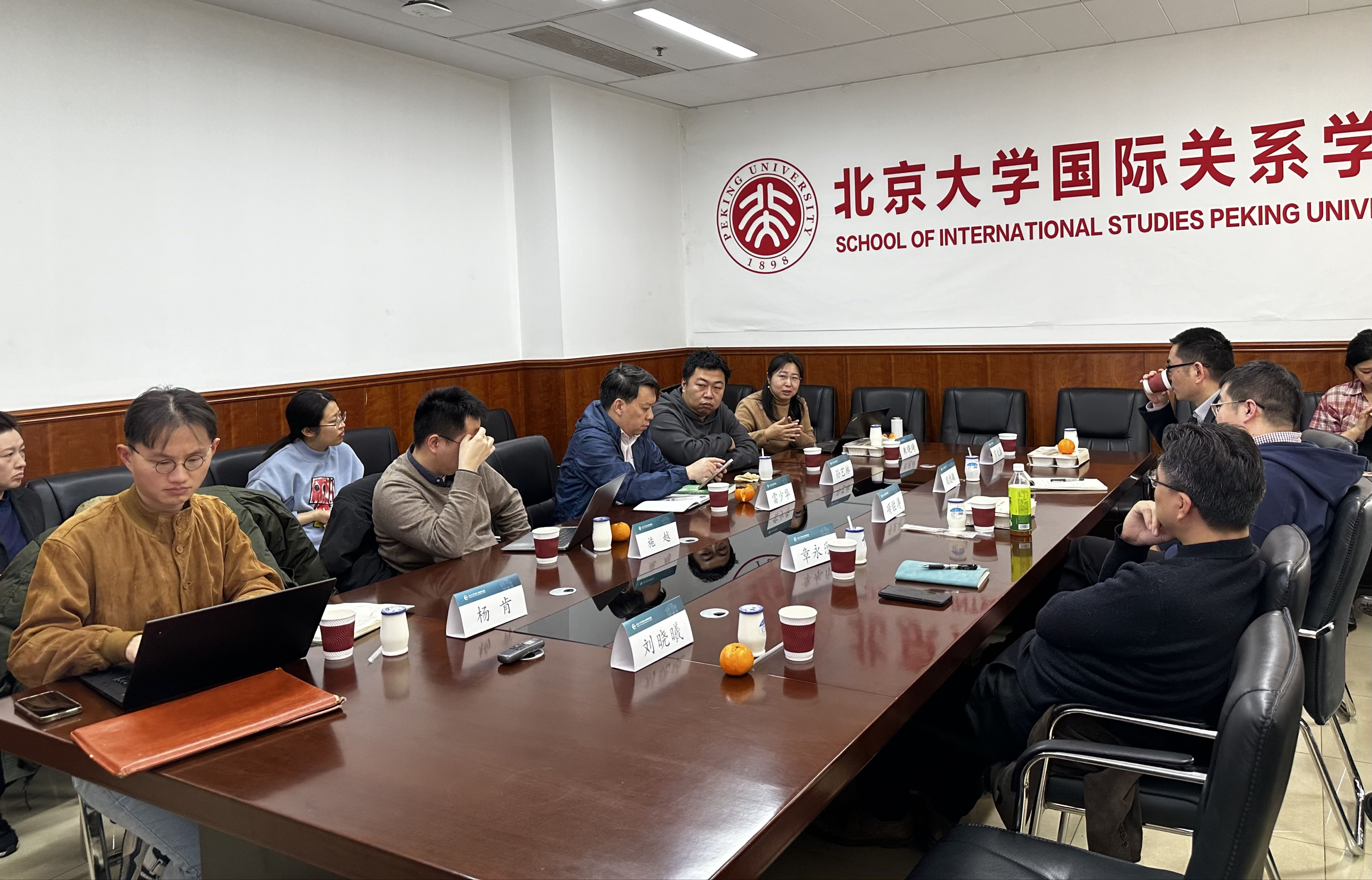
The 11th lecture of the seminar series on “Autonomous Knowledge System Construction and New Perspectives in Area Studies,” themed “Transformation of Central and Eastern Europe and China’s Central and Eastern European Studies,” was held on December 29, 2023. Co-hosted by the Institute of Areas Studies, Peking University (PKUIAS) and the Chen Hansheng Center for the Study of World Political Economy (CCPE), the seminar was delivered by Xiang Zuotao, deputy secretary of the Party Committee of the School of International Studies, and moderated by Zhang Yongle, deputy director of PKUIAS. Lei Shaohua, associate professor of the School of International Studies, PKU; Duan Demin, director of the Center for European Studies, PKU; Shi Yue, assistant professor of the School of Foreign Languages, PKU; Sun Yilin, deputy secretary general of the Institute of International and Strategic Studies, PKU; Zhu Xiaoqi, lecturer of the Department of Diplomacy of Renmin University of China; and students from several departments on campus participated in the discussion.
Xiang Zuotao explained in detail the reasons for the dramatic changes in Central and Eastern Europe from various dimensions such as political, economic, and geopolitical, and analyzed and evaluated the effects of the transformations in these countries. On the basis of this he deciphered the Euroskepticism of Central and Eastern European countries, as well as the internal logic of their choices of diplomatic relations with China and the US. He also looked forward to some of the key fields of China-Central and Eastern Europe cooperation in the future and the prospects of Central and Eastern European studies in China.
In the discussion session, Duan Demin elaborated on his understanding of Central and Eastern European issues from three perspectives: empire, colonialism and culture, and said that Central and Eastern European countries have their own uniqueness in terms of culture and values compared to Western European countries, and that there is a lot of room for cooperation between China and Central and Eastern Europe to expand. Zhu Xiaoqi believed that as small- and medium-sized countries, Central and Eastern European countries are in a very delicate position in the strategic games of big powers, and China should think about how to better meet their needs in foreign cooperation.
Sun Yilin said that in the field of network security and network governance, Estonia, Lithuania and Ukraine are countries that have attracted a lot of attention in the international arena. With the introduction of the EU AI law and the development of Internet products, topics such as the interaction between Europe’s traditional geopolitical and economic space and digital space, and the cooperation between China and the Central and Eastern European countries in relevant fields are all worthwhile to study.
Lei Shaohua talked about the current shortage of talent in Central and Eastern European studies in China from the perspective of the development of area studies. He said that China, as a rising power, may have interests in any part of the world. So, professional area studies talent is needed to help us have a more comprehensive and in-depth understanding of various regions and countries, so that polices can be implemented according to the local conditions.
Inspired by the cooperation between China and the Gulf States in Central Asia, Shi Yue opined that cooperation between China and Central and Eastern European countries also needed to realize the combination of strategic goals and economic activities, and to achieve this goal, China needs to cultivate area studies talent with strategic awareness as well as economic and trade knowledge.


